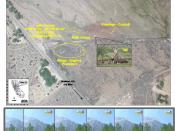When Wind Blows
When the wind blows, the risks increase for light aircraft operations. The single leading cause of accidents involves loss of directional control during takeoff or landing. The AOPA Air Safety Foundation's General Aviation Weather Accident Safety Review shows that over an 11-year period the National Transportation Safety Board identified wind as a primary cause of more than 2,800 accidents. These occurred primarily on landings, with takeoff being the second most likely phase of flight for wind accidents. Some might argue that wind isn't "weather" in the traditional sense of the word, but rapidly moving air marked by airmets and measured in steeply packed isobars isn't chicken soup. If there is a bright spot in all this, the accidents seldom cause more than minor injuries because the aircraft is moving relatively slowly and is generally in a landing or takeoff attitude. Crosswinds and gusts accounted for about 80 percent of the difficulty, according to the NTSB.
Pilots coming out of hibernation in March and April seem to have more trouble, which is logical because these are windy months in most parts of the country. As the earth heats up, the temperature differential between cold and warm areas causes frontal systems to move. Pilots often haven't been flying much in the winter or have flown only in stable conditions.
With reasonable proficiency and adequate runway dimensions, you should be able to handle surface winds up to 15 knots. The actual crosswind component might be around 7 or 8 knots. Defining reasonable is one of those details, and it seems that pilots are frequently overconfident right up to the point of impact. Flight instructors say that one of the toughest maneuvers to teach is a crosswind landing, partly because of the difficulty in scheduling the crosswind where and when you...


